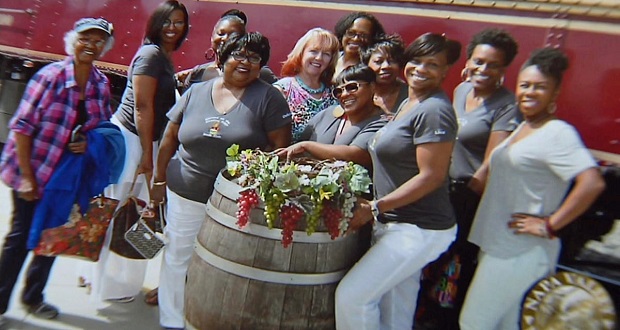
As DEI practitioners, we are steeped in diversity, equity, and inclusion topics all year. Yet, this upcoming month is a challenge and an opportunity for everyone to practice inclusion during a part of the year that it is particularly difficult to do so. Why? The holiday season is at once exciting, stressful, imbued with traditions that many hold dear. These energies can understandably extend into the workplace but can in fact be detrimental to an inclusive environment. “Adopt a family,” “Secret Santa,” cookie exchanges, holiday auctions, and holiday parties can often be understood as “Christmas in disguise,” which may be familiar and comforting to those who celebrate, but alienating to those who do not.
“Adopt a family,” “Secret Santa,” cookie exchanges, holiday auctions, and holiday parties can often be understood as “Christmas in disguise,” which may be familiar and comforting to those who celebrate, but alienating to those who… Share on XHere are a few things to consider this holiday season in your efforts to maintain an inclusive workplace:
- Secular vs. Non-Secular: Some people may feel frustrated around the holidays because they believe their workplace is pushing religion onto them. Deciding as a workplace if you will allow religious decorations or celebrations is a multifaceted conversation that must be considered in context and can be informed by your DEI leader(s). If you include some religions and not others, you may be opening your workplace up to the possibility of a discrimination complaint. In the public sector, the “separation between church and state” provides a clearly-defined line for the workplace.
Where these considerations become more difficult is regarding nuances around what is considered secular vs. non-secular. While decorations like angels and manger scenes are clearly non-secular, others may be less clear. Rudolph the Red-Nosed Reindeer is not a religious symbol but is associated with Christmas. Red and green decorations may be perceived as non-secular due to their associations as well. Clearly stating your organization’s policies will help your employees understand what is and is not considered acceptable.
- Complications with Events: There is a lot of pressure for people to attend holiday parties. Unfortunately, we forget that people might be fasting, have dietary restrictions or food allergies, or may have social anxieties—all of which can create an undue burden on your employees. Particularly in the world of networking and social mobility, there can be a variety of consequences for not being one to take part in all facets of a party. Take this into consideration as you plan your events and ensure that participating in different parts of the celebration is voluntary.
- Gift Exchanges: Some religions or belief systems do not allow for parties and presents. Consider whether parties or gift exchanges you host may be exclusive to some. If you really want to have these activities, focus on the needs of the workspace. Perhaps an alternative gift exchange could be “gifts for the workspace,” in which those who want to enjoy the “spirit of the season” can still contribute, while taking the potentially stressful part of personalized gift giving out of it. Can your work unit make a wish list of items to make the workplace better? (Kleenex, hand sanitizer, fun pens, markers, dishes, coffee, etc. would all make great additions to a workspace.) Taking a specified recipient out of the equation can allow for anyone to participate.
- Christmas Party in Disguise: Is your holiday party a Christmas party in disguise? Are there red and green decorated tables, Christmas cookies, Christmas music, and caroling taking place? Does Santa show up for group photos? If so, this is a Christmas party, and it may be exclusive to those who do not celebrate.
Consider: December is already a stressful part of the year. Does your potluck have to happen in December? January and February are dreary cold months with little activity. Can your potluck happen then? Almost everyone recognizes holidays like the New Year, which have less religious association. Can a recognition event highlighting the winter solstice or New Year be done instead? Consider putting efforts into inclusive traditions like exploring how New Years is celebrated in different cultures.
So, this year, what will you do to take an inclusive approach to the month of December?
So, this year, what will you do to take an inclusive approach to the month of December? Share on X

















